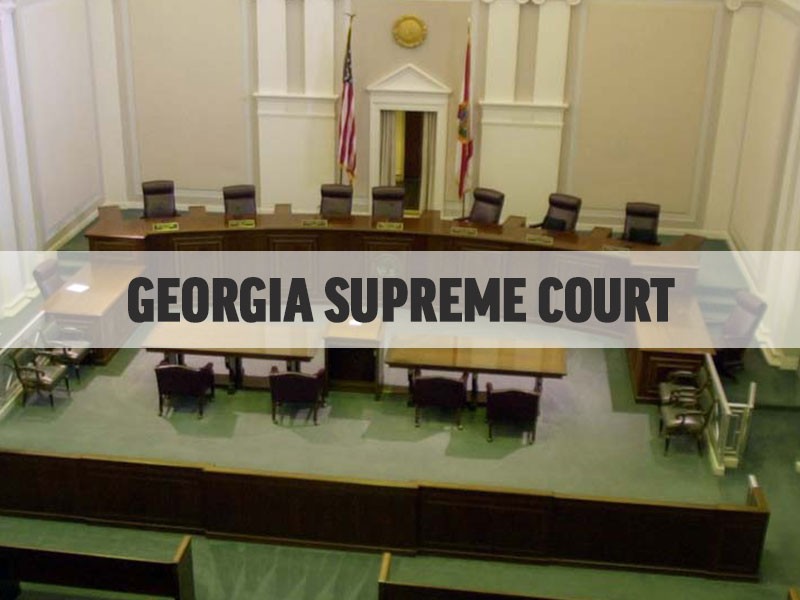In August 2006, Martin was indicted by a Dawson County grand jury for rape, aggravated sexual battery, aggravated child molestation and three counts of child molestation. Following a December 2006 trial, the jury found him guilty of all counts but rape. He was sentenced to 20 years in prison to be followed by a number of years on probation. On appeal, the Georgia Court of Appeals upheld his convictions in 2008 and the state Supreme Court denied his petition to appeal to the high court. In October 2011, Martin filed a petition for a “writ of habeas corpus” in Macon County Superior Court. (Habeas corpus is a civil proceeding that allows already convicted prisoners to challenge their conviction on constitutional grounds in the county where they’re incarcerated. They generally file the action against the prison warden, who in this case was Gregory McLaughlin.) In his petition, Martin alleged he had received “ineffective assistance of counsel” in violation of his constitutional rights from both his trial attorney and his attorney during his appeal because both attorneys neglected to attack the State’s failure to prove venue – or where the crime was committed. In September 2013, the habeas court denied Martin relief, and he now appeals to the Georgia Supreme Court.
ARGUMENTS: The Sixth Amendment to the U.S. Constitution states that, “In all criminal prosecutions, the accused shall enjoy the right to a speedy and public trial, by an impartial jury of the State and district wherein the crime shall have been committed….” In any criminal case, venue must be proved beyond a reasonable doubt. In its 2002 ruling in Graham v. State, the Georgia Supreme Court said: “Venue is more than a mere procedural nicety; it is a constitutional requirement that all criminal cases be conducted in the county in which the crimes are alleged to have occurred. Proof of venue is essential to a criminal prosecution.” The record in this case, however, “did not prove venue beyond a reasonable doubt,” Martin’s attorney argues in briefs. When A.C. was asked at trial, “where do you live?” she responded, “Dawsonville, Georgia.” When the State prosecutor later asked, “do you know what county your house is in?” the girl replied, “in Dawsonville.” She went on to testify about various incidents involving Martin that allegedly occurred in her house, which were the basis for his charges. While Dawsonville is the county seat of Dawson County, the city of Dawsonville is not located entirely in one county. Rather it lies in at least four counties, the attorney argues. “As noted in Martin’s petition, there is no dispute that A.C.’s home was in Dawsonville, and Martin’s aunt’s testimony shows that part of Dawsonville is in Dawson County. However, the State presented no evidence, nor was there any stipulation or judicial cognition, which showed that Dawsonville – or A.C.’s home – was located entirely within Dawson County,” the attorney argues. “Thus, because ‘the State’s evidence clearly authorized the jury to find that the crimes occurred in [Dawsonville], but failed to mention either that the crimes were committed in [Dawson] County or that [Dawsonville] is located entirely within [Dawson] County,’ the evidence was not sufficient to convict Martin.” The habeas court tried to “sidestep the multi-county issue” by stating that during the trial, the State “did in fact offer circumstantial evidence to prove venue,” including evidence that a 911 call from the victim’s mother resulted in an investigation by the Dawson County Sheriff’s Department and the Dawson County Department of Family and Children’s Services. Also, the testimony of A.C.’s father “created an inference” that his home is located in Dawson County. However, none of the circumstantial evidence clearly delineates in which county the alleged crime occurred, the attorney argues. “The evidence therefore reflects that the state failed to prove beyond a reasonable doubt that venue in Martin’s case lay in Dawson County.” The habeas court therefore erred and should have found that his attorney was ineffective and “Martin was prejudiced by counsel’s failure to raise venue as an issue on appeal.”
The Attorney General’s office argues for the warden and State that the habeas court properly ruled that appellate counsel was not ineffective for not challenging the sufficiency of the evidence of venue. Martin has failed to meet his burden of proving not only that his attorney was deficient, but also that there is a likely probability the outcome of his trial would have been different had it not been for his deficiency. After the appeals attorney reviewed the trial transcript and the trial attorney’s file, he noted that venue was a potential issue, “but ultimately raised other grounds that he believed to be the most meritorious,” the State argues. “Petitioner has not shown that decision was unreasonable.” Furthermore, “Petitioner was not prejudiced because the State provided circumstantial evidence that proved beyond a reasonable doubt that venue was proper in Dawson County.” In addition to the fact that the Dawson County Sheriff’s Office and Dawson County child welfare agency responded to the 911 call by A.C.’s mother, Dawson County investigators contacted the father of a second potential victim of Martin’s related to the case. “As public employees, the investigators and DFACS are presumed to have been acting properly within their jurisdiction,” the State contends. “Second, the victim’s father implied in his response to the State’s question regarding the location of the Huddle House, that he left his home in Dawson County and went just across the county line into Pickens County where the Huddle House is located.”

http://accesswdun.com/article/2015/5/309223/scoga-man-says-state-failed-to-proved-venue-in-dawsonville-sex-assault-case
